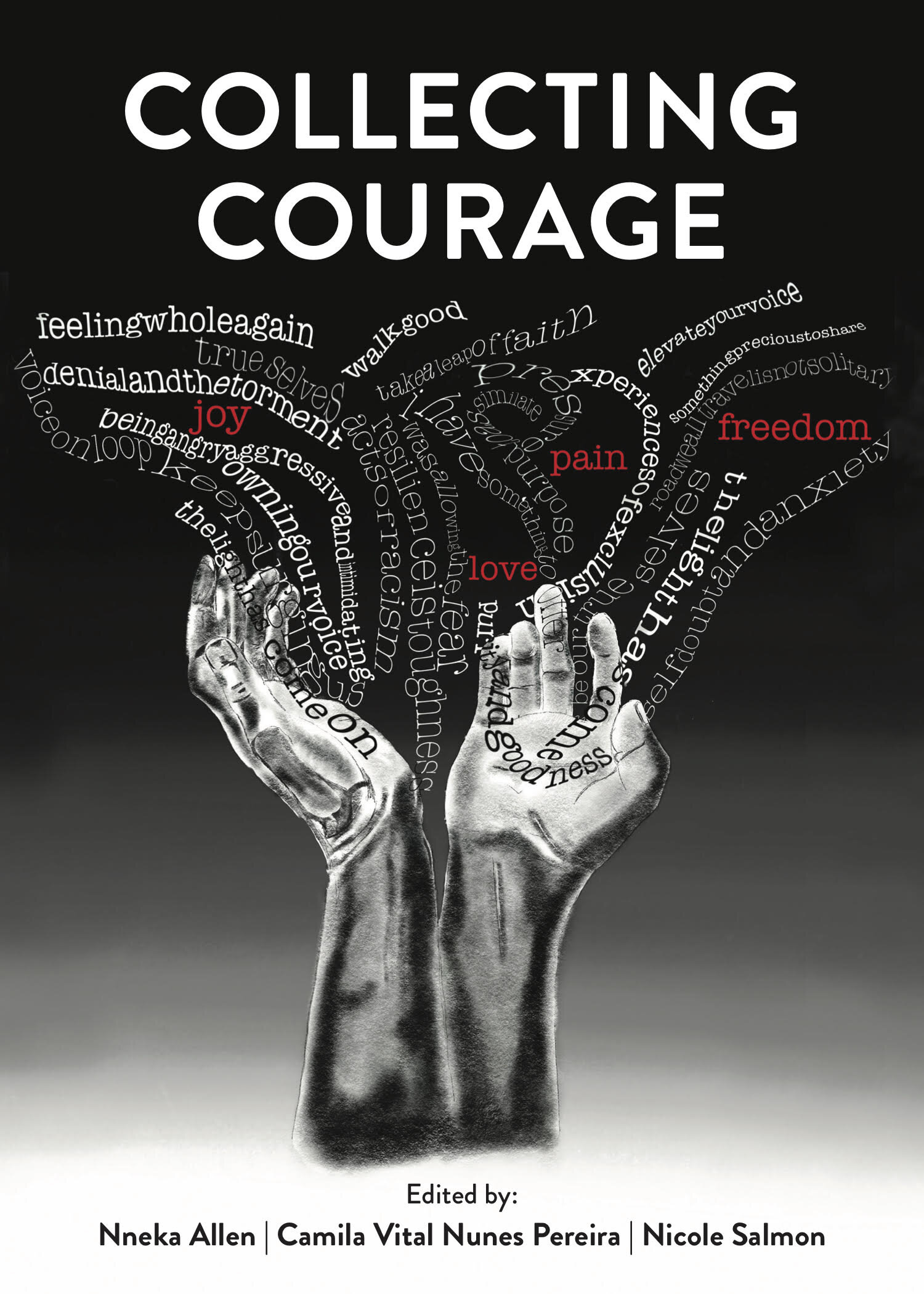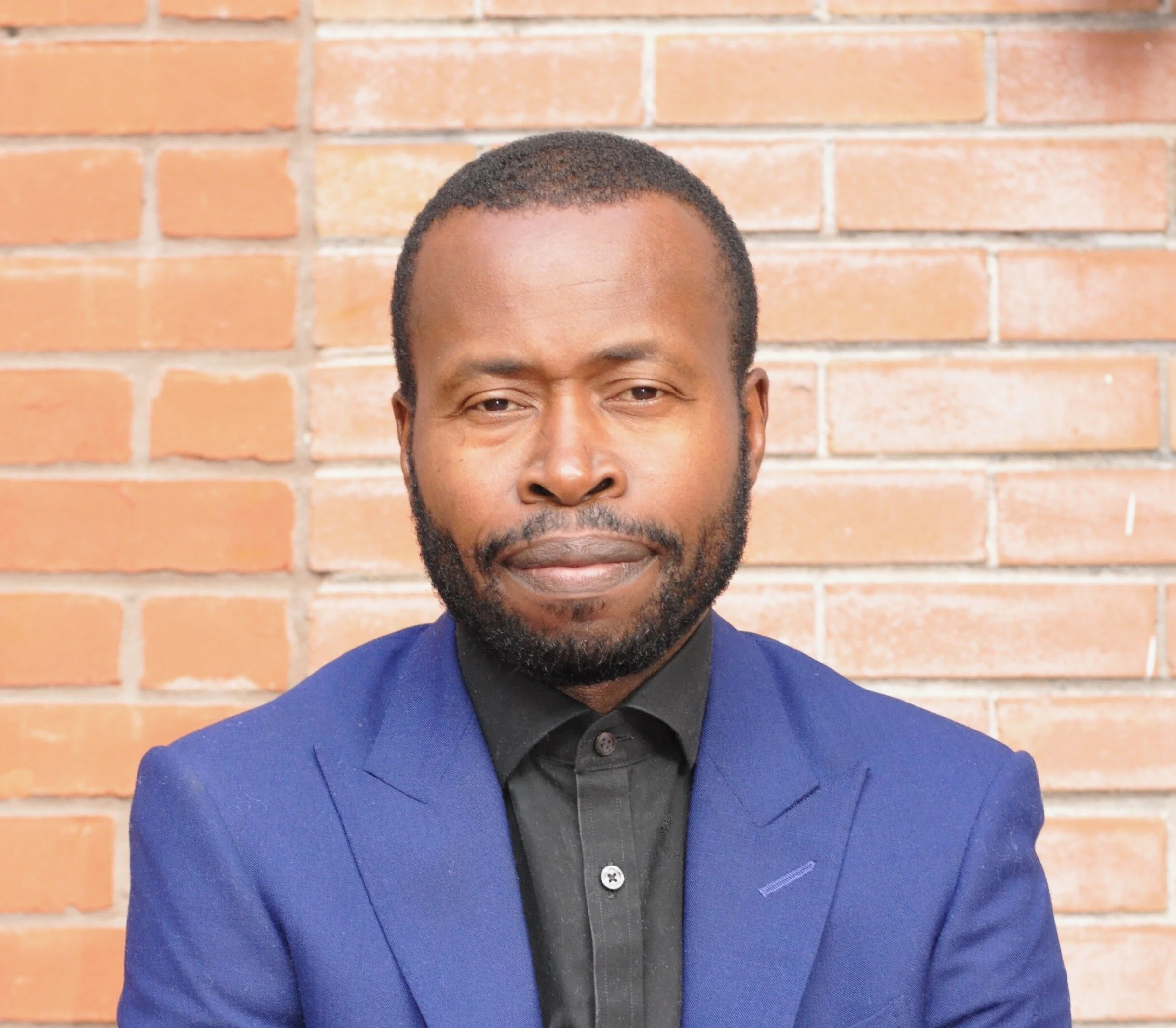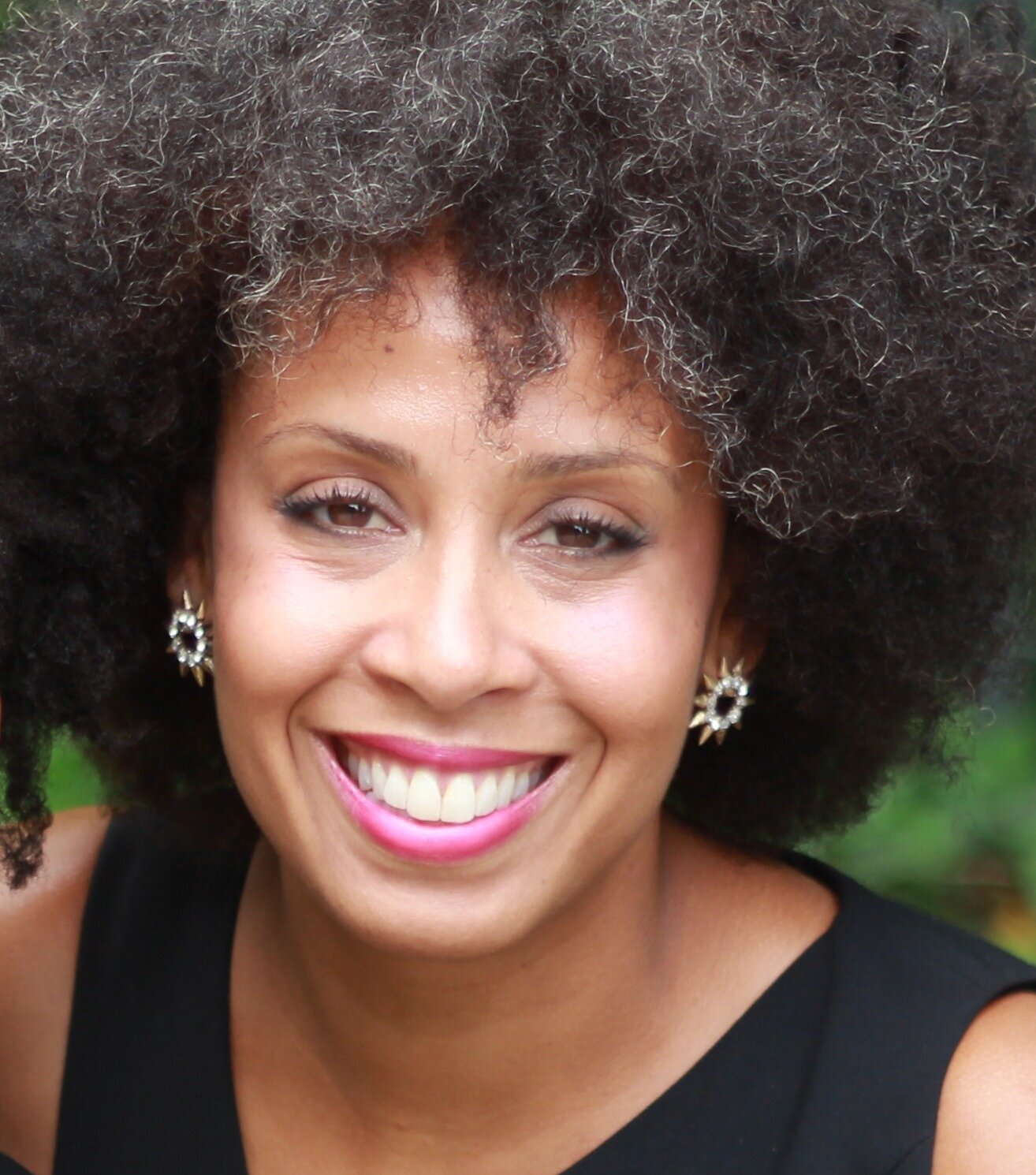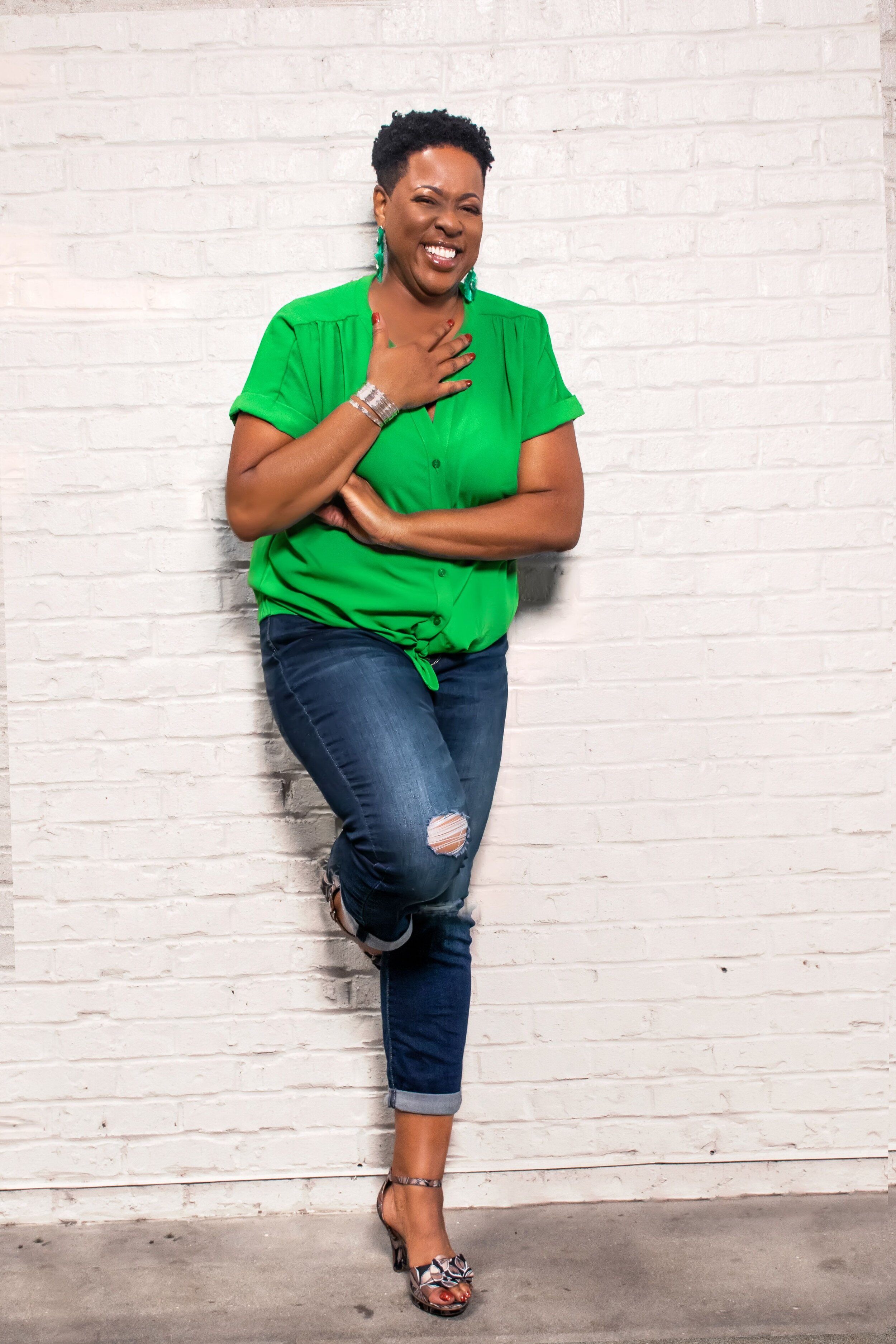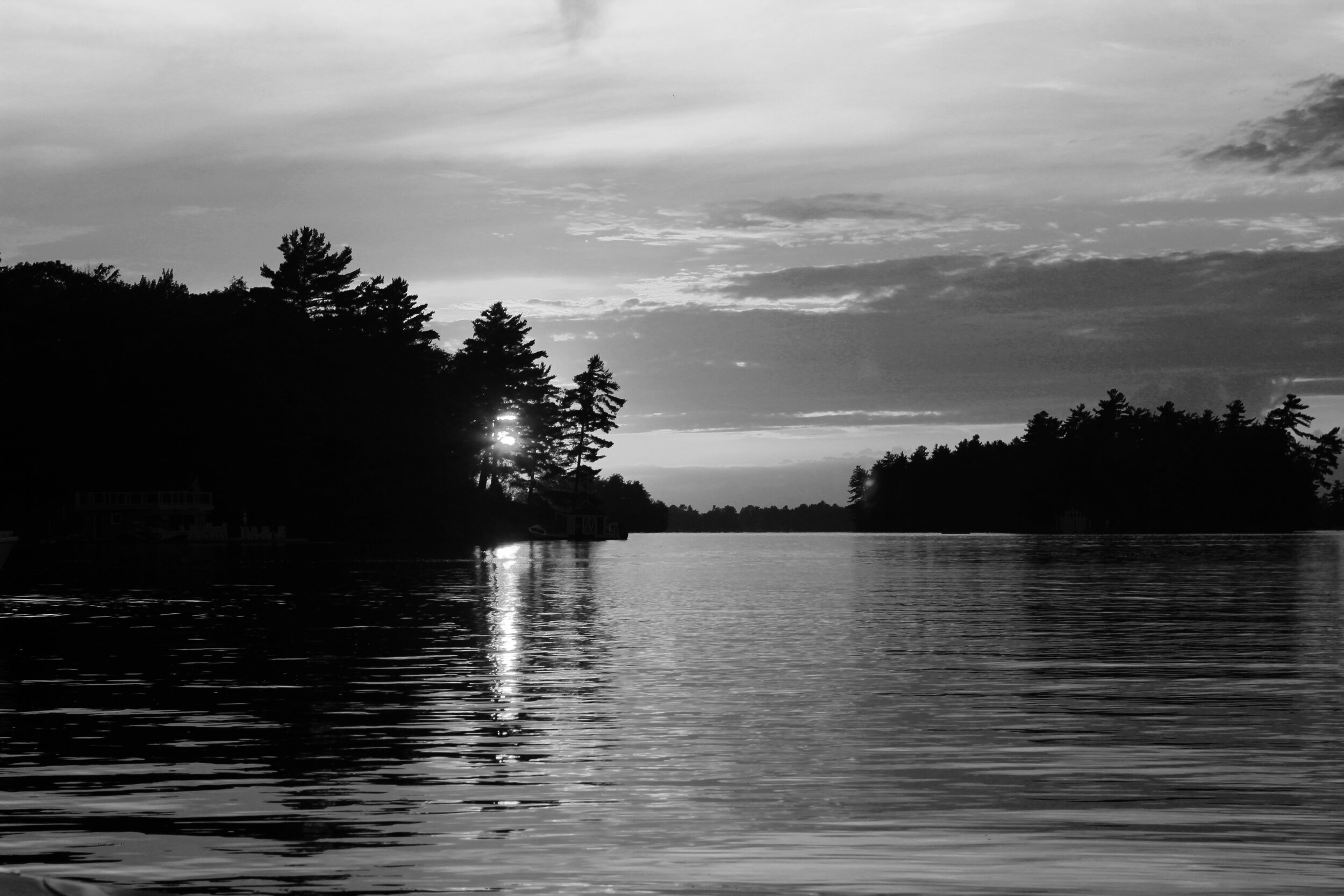
We want to
know your story.
-
Warning! The Platform is Burning
By: Nicole Salmon
-
When I Was Found
By: Christal M. Cherry
-
Don't Ask Me
By: Nicole E. Cozier
-
Us and Them: What it Really Means to Belong
By: Nneka Allen
-
IS IT ME, OR IS IT A HATER?: HOW TO STOP CHASING THE APPROVAL OF HATERS
By: Nicole E. Cozier
-
I am Beautiful!
By: Sherrie James
-
Of Love: A Message to my Daughter as she Launches her Career in the Non-Profit Sector
By: Mide Akerewusi
-
Broken Crayons: What Happens When Nonprofit Leadership Fails Fundraisers of Color
By: Christal M. Cherry
-
Silence is Complicity: What is Unsaid Speaks Volumes
By: Nicole Salmon
-
In The Sea: Acts of Courage
By: Nneka Allen
Warning! The Platform is Burning
By: Nicole Salmon
The platform’s been burning for a real long time Bells tolling louder with the passage of time
A piercing crescendo and deafening cry
An unravelling future looming, now in clear sight
Really, is there any surprise here?
Embers been smoldering many years, many years
Word on the street of rising discontent within
Though bodies may change the outcome remains the same
How is this possible, one may ponder and wonder?
Keep close to the chest a like-minded held deck
Body shuffle still keeps culture in check
Yielding same old results one would expect – Barriers and Exclusion!
But what about the audit and scorecard to measure progress?
Performative actions ramped up to full gear
Priorities set, IDEAs set in motion, now we are in the clear Perfect opportunity to don and flex the inclusivity vest
Are you saying the IDEA ambitions and aspirations are paper thin?
Scorecards are helpful if it measures the right things
Stating ambitions and aspirations is never a bad thing
Unless hollow it rings, if avoidance is the choice when facing real messy things
So, what’s the real issue facing AFP-GTC?
There is no leaping over or power-broking through this
Absorb the sting of harm inflicted; hold back from tiptoeing around it
The blame must sit where it fits and not on the folx burned and harmed as a result of it
Is there time to douse the flames and right the course?
There is a price to pay for where we are today
It’s a cost incurred, due to four years delay
Optimism remains, though it may be risky to keep holding our breath There is a path ahead but take care in choosing the next step
When I Was Found
By: Christal M. Cherry
In the two years since the publishing of Collective Courage and my entry into a belovedcommunity of powerful Black fundraisers, I have traveled the long road toward personal restoration and racial healing and awakening.
In my Chapter, The Epiphany of Joyful Fundraiser, I share that I woke from a long slumber of believing that I was not fit for nonprofit work. I had been degraded, demoted, humiliated, and fired from jobs on more than one occasion. I thought I had chosen the wrong career or maybe I was just not good enough a fundraiser to be successful.
Friends and some family members suggested that I do something else – you know – be a teacher, social worker, or counselor. I did after all earn a master’s degree in counseling. While I had considered all the above, I didn’t feel drawn to these careers which were also fraught with challenges.
During the pandemic, I grieved the loss of my partner and son’s father and was deafened by the cries for social and racial justice from around the world. I knew I wanted to delve into deeper introspection of who I was, what I believed, and how I could use my voice to make change.
The real epiphany was yet to come.
I began by writing my race story. I thought about my parents, their beliefs, and how they instilled them into me and my three sisters. Both of my parents were born in the 1940s in Brooklyn, New York. My father had family in the south and had been exposed to the racism and bigotry of Jim Crow laws there. He talked of his summer trips to North Carolina where he was not able to go inside restaurants. To be served, he had to pick up food from the back door. White police and others in the south could beat and abuse black people with little to no consequences. My father later became a policeman in New York City and was subjected to racial discrimination on the force. My mom’s family was from the Caribbean and Georgia although she grew up in Brooklyn and was protected from overt discrimination. Her community was segregated. Her family were lower middle-class, blue-collar workers who worked hard to provide. They wanted no trouble. They were not rabble rousers.
Don’t Ask Me
By: Nicole E. Cozier
Please don’t ask me to speak for my race. Like somehow I was imbued with the power of omnipotence and omnipresence,
Like my experience is THE quintessential experience of Blackness.
While I know I contain multitudes, I cannot possibly represent the depth and breadth of how Blackness and Black identities have been lived through our ancestors and through the rich diversity that is our community.
Please don’t ask me to be your “safe Black” Your “exception.”
Your “Get-out-of-racism-free card,”
Your “But-I-have-a-Black-friend/colleague/neighbor”…
…That justifies your near but not quite segregated existence.
Because from your birth to your death, you are able to exist solely in a sea of whiteness if you choose.
Your sense of self and worldview unchallenged by the the systems and norms around you.
I will not be the currant in your rice pudding that helps you feel safe and justified in your cloister of privilege.
Don’t ask me to be your absolution.
Your cheerleader, assuring you that I know you didn’t mean it THAT way.
The bestower of your “you aren’t one of THOSE whites” certificate.
Your witness that “you don’t have a racist bone in your body”
Your, “if they knew you they would know that…(dot dot dot)”
Because if you really cared, you would want to know that thing you said didn’t land right or was just plain ignorant.
Because appearing to be a good person wouldn’t be nearly as important as actually striving to BE one.
I do you no favors letting you live in the protection of your idealized sense of yourself. Holding you accountable is a gift, even if you don’t like the wrapping.
Us and Them: What it Really Means to Belong
By: Nneka Allen
Prologue
This struggle lasted two years. It was painful and exhausting. The violence perpetrated against my humanity was wounding, the curation of indignities designed to force my submission, sickening. Despite the wounds, I was steadfast in my conviction. I refused to be threatened, pressured or degraded into conforming. It didn’t matter that I was outnumbered by many white, Black and brown Board members who chose the side of White Power. I had to use my power, my small “p” power to demand change.
I was tired of my professional membership Association cultivating a culture of white elitism and exclusion. The Association and its Board were well-known as cliquish, unkind, closed and very white. They were and still are the largest professional Association of its kind in the world and they have money and power. So, few people challenge them.
And that’s why I declined joining the Board when I was originally approached by their outgoing Board President (the “Old President”), a brown man who had invested a tremendous amount of energy and time trying to make the Association more relevant and representative. He was intent on “diversifying” the Board before the end of his term. After multiple phone calls with him and a Black male Director (the “Brother Director”), I acquiesced. They had convinced me that my voice was needed at their Board table. That was the spring of 2017.
Fast-forward two and a half years and I was resigning. Just as most of my fellow Board members were being granted Committee chair positions. You see, power had been wielded against me for the last time. My exclusion had been persistent and to escape further physical and psychological trauma and humiliation, resignation was my only healthy option. The Board had secured their goal in the face of my opposition.
IS IT ME, OR IS IT A HATER?: HOW TO STOP CHASING THE APPROVAL OF HATERS. (PART 1 & 2)
By: Nicole E. Cozier
So, some of you are going to see this title and know EXACTLY what I am talking about. For those who are intrigued, but confused, let me elaborate.
Have you ever found yourself on the wrong side of someone else’s criticism or judgment? You try to be responsive and use the information as a learning opportunity, but somehow the experience becomes more and more about chasing their approval than actual self-improvement.
Unfortunately, this realization usually comes after you have exhausted a lot of emotional energy and twisted yourself into a pretzel trying to claim that elusive prize of your critic's “approval.”
That’s when the thought hits you: Am I the one who needs to do better here, or am I dealing with someone who is just invested in being critical and judgmental (of me) no matter what I do?
In other words: Is it me? Or am I dealing with a hater?
When I say HATER, I am not talking about a person with deep dislike about a particular thing, but a person who seems wholly invested in showing disapproval toward, criticizing, or belittling other people or things, usually unfairly. Whether this is a way of life or a “special chemistry” between the people involved, the die has been cast - a hater is born.
Because “haters gon’ hate” and the world will not stop turning while we figure it all out, your next question will probably be: How do we identify these haters before losing precious time and energy going down that rabbit hole of futile approval-seeking?
Well, I’m glad you asked! I am writing this piece to begin to identify some hater archetypes in hopes that it will help others know what to look out for, and better navigate the hater minefield, especially when you are someone committed to self-reflection, personal responsibility, and personal growth.
The goal at the end of the day is to own what is yours, grow from it, and leave the rest.
I am Beautiful!
By: Sherrie James
I learned that I am beautiful today! For the first time, this knowledge has sunk in and might take root - firm, strong roots that will not be shaken.
I learned I am beautiful today! This girl, this woman- who grew up pulling her nose. First with a pinch at the point between my eyebrows followed by a slow tuck down my invisible bridge. Pulling my nose has become an enduring habit, a comforting one. And possibly in the recesses of my mind, I've come to believe in its effectiveness.
As a little girl, I was encouraged to cultivate this practice. My fingers became pros at the task. My thumb and index finger would find their mark in the middle of a math class, on my walk to school, or while listening to music. No special occasion was warranted. They would find any moment to pinch and pull, pinch and pull, pinch and pull. I did it because I believed in the power of this act.
I did not love my nose. It was a flat nose. It did not matter that my nose resembled that of the people around me. What mattered was that it could improve, be better and as a result I would be better. See, I was an ugly child. I was told as much. The bearers of this fact were people who loved me so it had to be true. It did not help that the occasional taunt in the schoolyard also targeted my ugliness. If pinching my nose could change my face, make me pretty then it was a welcomed solution.
The pinching continued into my adolescence and my nose became straighter. I was also comparing myself to other girls at this stage, and my nose was not as big, not as flat as others. It had lost weight over the years. It was slimmer, thinner at its base and there was evidence of a bridge that seemed nonexistent before. And I was proud! I was not as ugly. What I heard now was, “You're getting cute! You're growing nicely!”
Of Love: A Message to my Daughter as she Launches her Career in the Non-Profit Sector
By: Mide Akerewusi
Dear Young lady, I love you!
You are used to hearing me say that I am your number one fan! It’s true! Nobody adores you as much as I do. There’s so much to tell you, and too little space to write. Because I love you, I feel the need to warn you and to also assure you. I feel compelled to share this letter of love. It is intended for you and others who share your situation – Black women in the non-profit sector. Out of necessity you form a resistance to racism. Your work is steeped in love, however, this work must also endure the barbs of discrimination.
“Hatred is your reward for our love”– Bob Marley.
Of You
You identify your pronouns – “she”– “her”– “they”. Yet and in the non-profit sector your are an adjective, “the Black girl”– the “Black person”– the “Black one”– the Black this or that. Your humanity is nearly always defined by the shade of your skin, rather than the content of your beautiful heart.
“Your work is steeped in love however, this work must also endure the barbs of discrimination.”
You seek a place to belong in clinics, labs, surgeries, schools, and offices. Each day, you deal with objections to your presence in white-dominated spaces. Like sexism, which you also navigate, racism has a way of making its victims question their worth.
“Say it loud, I am Black and I am proud”– James Brown
Broken Crayons: What Happens When Nonprofit Leadership Fails Fundraisers of Color
By: Christal M. Cherry
We trusted you! We knew when we showed up on day one as the new Chief Development Officer at your impactful nonprofit, leadership would be behind us. After all, y’all said so in the three interviews we had with the staff, Executive Director, and the Board of Directors. The job description clearly stated that nonprofit leadership values all employees and the unique contributions they bring to the organization.
So, what happened? Why are so many fundraisers, but particularly fundraisers of color, distraught, marginalized, left out, and burned out?
There are a plethora of reasons, including a lack of understanding about the true nature of fundraising work, impatience in wanting money to come pouring in tomorrow when the organization lacks proper resources, apathy from the Board of Directors, and the deadliest — bias, fear, exclusion, and racism!
A new book released last fall, Collecting Courage: Joy, Pain, Freedom, Love, flabbergasted Board members, Executive Directors, and even other fundraisers with its revelations about the plight of fundraisers of color in the nonprofit sector. Many admitted to being clueless about the fear, intimidation, marginalization, and downright hurtful treatment we’ve endured.
The book is an anthology of stories written by fundraisers of color in the United States and Canada:
“With searing and intimate detail, we wrote about our experiences with anti-black racism—about coping with being last hired, first fired, overlooked for promotion to outright hostility in toxic workplaces.”
When I was asked to contribute to the book, I responded with a resounding “YES.” I wanted to share about my personal journey as a fundraiser. I had been fired a few times but being let go wasn’t the worst part. The pain, humiliation, and attacks on my character and self-esteem were the most piercing. Fundraising is about treating others with kindness and thoughtfulness in order to build trusting relationships. It’s about being gentle with our donors. Fundraising is innately human, yet in my opinion I wasn’t treated humanely.
Silence is Complicity: What is Unsaid Speaks Volumes
By: Nicole Salmon
“When you see something that is not right, not fair, not just, you have to speak up. You have to say something; you have to do something.”
– John Lewis
Welcome to the social profit/nonprofit sector. You know, the good sector, the one that has long basked in its reputation of doing good work. It’s an inherent goodness that is unquestionably bestowed upon it.
However, for far too long Black, Indigenous, and People of Colour have absorbed all that the sector has on offer — the good, the bad, and the downright harmful and reprehensible.
And their stories are disturbing.
In 2020, I got the opportunity to co-edit a book with Nneka Allen and Camila Pereira called Collecting Courage: Joy Pain Freedom Love. The book, published in November 2020 by Gail K. Picco Books, an imprint of Civil Sector Press, features the work of 15 Black contributors. The authors open up to share their experiences and truths as Black fundraisers drawn towards the power of philanthropy to change lives, but who find themselves “othered” within the very sector hallmarked for doing good deeds and providing vital services.
The book has been well received by many. For Black, brown, and other underrepresented groups in the sector, the book’s message resonates and validates individual and collective experiences. Along with receiving many individual endorsements, the book has been reviewed by Krishan Mehta, Ginelle Skerritt and Tycely Williams, three well-respected individuals with deep knowledge and expertise about the sector.
Some white counterparts, overwhelmingly female, have stepped forward with a level of intentionality that demonstrates courage in confronting the truths shared in the book. They are stepping forward, loud and unabashed in their commitment to challenge and dismantle long upheld, revered, and oppressive systems. They have deliberately chosen to walk the talk and that support is appreciated and welcomed.
However, sadly but not surprisingly, many others who in the past (and currently) publicly profess and position themselves as social justice and equity-seeking allies and advocates have chosen to remain silent.
In The Sea: Acts of Courage
By: Nneka Allen
~ Act 1 ~
He was a Physiotherapist who now identifies himself as a Fundraising Executive. Bobby seemed like a “real” person at first. But only time would reveal the truth. And time truly did. It didn’t take long to realize I had walked into a sea of mediocracy. It took a little longer to know what else was in that sea.
I was being hired for a newly created position. On the outside, it seemed like a reputable organization with a compelling raison d’être - to inspire investment in excellent health care. Shocking to me was the maladroit operation I joined. An organization that prioritized monetary investment over caring for people.
After being unemployed for 7 months, I hoped that my new organization would be different than my last three employers. I needed it to be different. In those past charitable organizations my contribution, skills, education and worldview were scrutinized, excluded and even punished. I learned some valuable lessons from my previous employers that helped me situate my experiences in my new job.
We eagerly anticipate your stories so we can share them here soon.
For a little inspiration listen to our authors share more about themselves.
“Many stories matter. Stories have been used to dispossess and to malign. But stories can also be used to empower, and to humanize. Stories can break the dignity of a people. But stories can also repair that broken dignity.”
Chimamanda Ngozi Adichie
If you could write anything you wanted what would it be?
What book do you remember reading as a teenager?
What book do you remember reading as a teenager?
Who would you like to have read you a story?
Who would you like to have read you a story?
If you could write anything you wanted what would it be?
What book do you remember reading as a teenager?
What book do you remember reading as a teenager?
Who would you like to have read you a story?
Who would you like to have read you a story?
What book do you remember reading as a teenager?
If you could write anything you wanted what would it be?
What book do you remember reading as a teenager?
Who would you like to have read you a story?
What book do you remember reading as a teenager?
If you could write anything you wanted what would it be?
Who would you like to have read you a story?
What book do you remember reading as a teenager?
What book do you remember reading as a teenager?
Who would you like to have read you a story?
Who would you like to have read you a story?
Who would you like to have read you a story?
What book do you remember reading as a teenager?
What book do you remember reading as a teenager?
If you could write anything you wanted what would it be?
Who would you like to have read you a story?
Who would you like to have read you a story?
What book do you remember reading as a teenager?
Who would you like to have read you a story?
Who would you like to have read you a story?
If you could write anything you wanted what would it be?
If you could write anything you wanted what would it be?
If you could write anything you wanted what would it be?
What book do you remember reading as a teenager?
If you could write anything you wanted what would it be?
If you could write anything you wanted what would it be?
If you could write anything you wanted what would it be?
If you could write anything you wanted what would it be?
Who would you like to have read you a story?
What book do you remember reading as a teenager?
If you could write anything you wanted what would it be?
If you could write anything you wanted what would it be?
